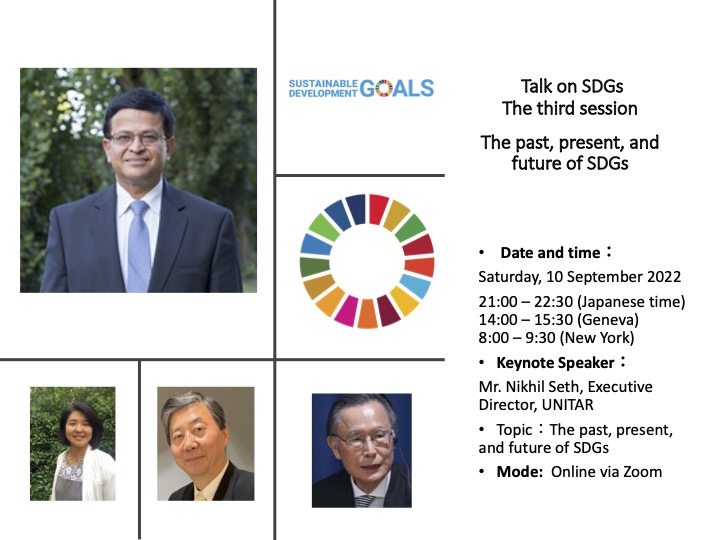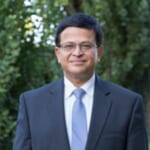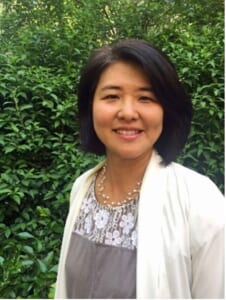
The third session – Talk on SDGs
The past, present, and future of SDGs
Date and time:Saturday, 10 September 2022, 21:00 – 22:30 (Japanese time), 14:00 – 15:30 (Geneva), 8:00 – 9:30 (New York)
Keynote Speaker: Mr. Nikhil Seth, Executive Director, UNITAR
Title:The past, present, and future of SDGs
Mode: Online via Zoom
This is the third session of the new talk series on SDGs that AFICS-Japan started last year. The first session focused on “Health” within the first P, People and the second session looked at the second P, Planet, broadly. That is to say that we have been looking at SDGs according to the grouping of 5Ps so far. As for this session, however, since we are also at the mid-point of the implementation period up to 2030, we thought it would be a good idea to look at SDGs as a whole.
We are delighted that Mr. Nikhil Seth, who is really fit for this purpose, accepted to give us a talk. As you see from his profile, Mr. Seth, as the Director of the Division for Sustainable Development of UN DESA, spearheaded the support of the secretariat for the intergovernmental negotiations on “The future we want” (outcome document of Rio+20), which decided to develop SDGs, on SDGs themselves, and on “Transforming our world: 2030 Agenda for sustainable development,” contributing greatly to the agreements of all these important documents. Considering that he joined the United Nations to assume the position of Special Assistant and Chief of Office to the Under-Secretary-General for Economic and Social Affairs, who was the head of the (then) newly created Department of Policy Coordination and Sustainable Development to oversee the implementation of the outcome of the first Rio Summit, the United Nations Conference on Environment and Development (1992), he has been dealing with “sustainable development” for a long time.
At this third session of the talk series on SDGs, we will hear from him the past, present, and future of SDGs, as the title shows. Ms. Yoko Watanabe, Global Manager, GEF Small Grants Programme of UNDP, who delivered the keynote speech at the second session of this talk series, will give us a few words as a commentator.
Programme
20:50 Start opening Zoom meeting room
MC:Mr. Ken Inoue,・AFICS-Japan Executive Committee member
21:00 Opening of the Meeting
Mr. Sukehiro Hasegawa, President, AFICS-Japan
21:05 Keynote Speech: The past, present, and future of SDGs
Mr. Nikhil Seth, Executive Director, UNITAR
21:30 Commentator:Ms. Yoko Watanabe, Global Manager, GEF Small Grants Programme, UNDP
21:35 Discussion, Q&A: Moderator: Mr. Sukehiro Hasegawa, President, AFICS-Japan
22:25 Summary of the Discussion、Announcement of the next events
22:30 Closure of the meeting
Profiles of the speakers:
Mr. NIKHIL SETH, UNITED NATIONS ASSISTANT SECRETARY-GENERAL, EXECUTIVE DIRECTOR, UNITAR
 Mr. Nikhil Seth was appointed as UN Assistant Secretary-General, Executive Director of the United Nations Institute for Training and Research on 8 June 2015.
Mr. Nikhil Seth was appointed as UN Assistant Secretary-General, Executive Director of the United Nations Institute for Training and Research on 8 June 2015.
Before assuming the current position, Nikhil Seth was the Director of the Division for Sustainable Development, Department of Economic and Social Affairs (DESA) at the United Nations Secretariat in New York. In this role he served as head of the Rio+20 secretariat and of the secretariat for the Third International Conference on Small Island Developing States. He was also closely engaged in coordinating and advancing their follow-up.
Mr. Seth’s Division was also responsible for supporting the intergovernmental negotiations for the post-2015 development agenda, which was adopted at the United Nations Sustainable Development Summit 2015 in September 2015.
During his career with the United Nations since 1993, Mr. Seth has served as Special Assistant and Chief of Office to the Under-Secretary-General for Economic and Social Affairs (Sept 1993 – Jun 2001), Chief of the Policy Coordination Branch in the Division for ECOSOC Support and Coordination (Jun 2001 – Jan 2003), as Secretary of the Economic and Social Council (ECOSOC) and the Second Committee of the General Assembly (Feb 2003 – Aug 2006), and as Director of the DESA Office for ECOSOC Support and Coordination (Aug 2006 – Aug 2011), where he guided the ECOSOC’s work in implementing several new key mandates, including its Annual Ministerial Review and Development Cooperation Forum.
Before joining the UN Secretariat, he was a delegate to the UN in the Permanent Mission of India to the United Nations (Sep 1990 – Sep 1993) and involved with various UN conferences and summits including the Rio Summit on Environment and Development and the climate change related process.
Ms. Yoko Watanabe, Global Manager, GEF Small Grants Programme, UNDP
UNDP
Ms. Yoko Watanabe has over 25 years of professional experience working on biodiversity, natural resources management, and international development. She directs the GEF Small Grants Programme (SGP) at UN Development Programme (UNDP) as its Global Manager. SGP is one of the largest global funds dedicated to supporting innovative community actions that address global environmental issues with civil societies and communities-based organizations, including women, indigenous peoples, and youth groups. With a total budget of more than US$1 billion, the program is currently operational in over 125 countries with more than 24000 projects.
Prior to joining the SGP, Yoko worked at the Global Environment Facility (GEF) and held various key positions, including Heads of Asia Program and Gender/Social Inclusion Team. She also served as Program Manager on biodiversity, and passionate about saving endangered species and places with local communities. Yoko also worked at the World Wide Fund for Nature (WWF), as its Conservation Director at the Mongolia Country Office and later as a Senior Advisor on Multilateral Relations at the US Office. She started her development and environment career in 1995 at the Japan International Cooperation Agency and later at UNDP as Environment Program Officer at Nepal and Mongolia Offices.
Yoko is a Japanese citizen and holds a master’s degree in International Development with a focus on Environment and Natural Resources Management. For her undergraduate, she studied Environmental Studies and Development Economics in Tokyo. She is married, with two children.
Welcome! It’s your first time on this page, and we are glad to have you.
